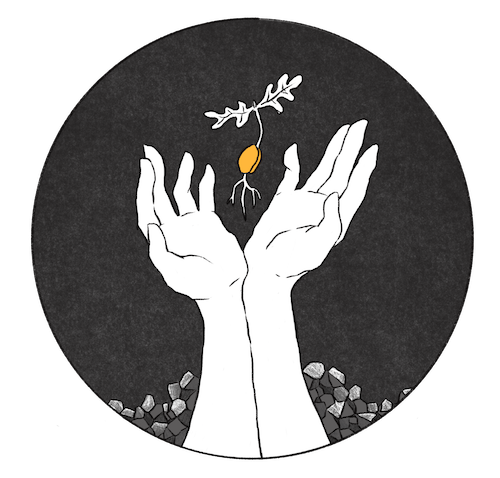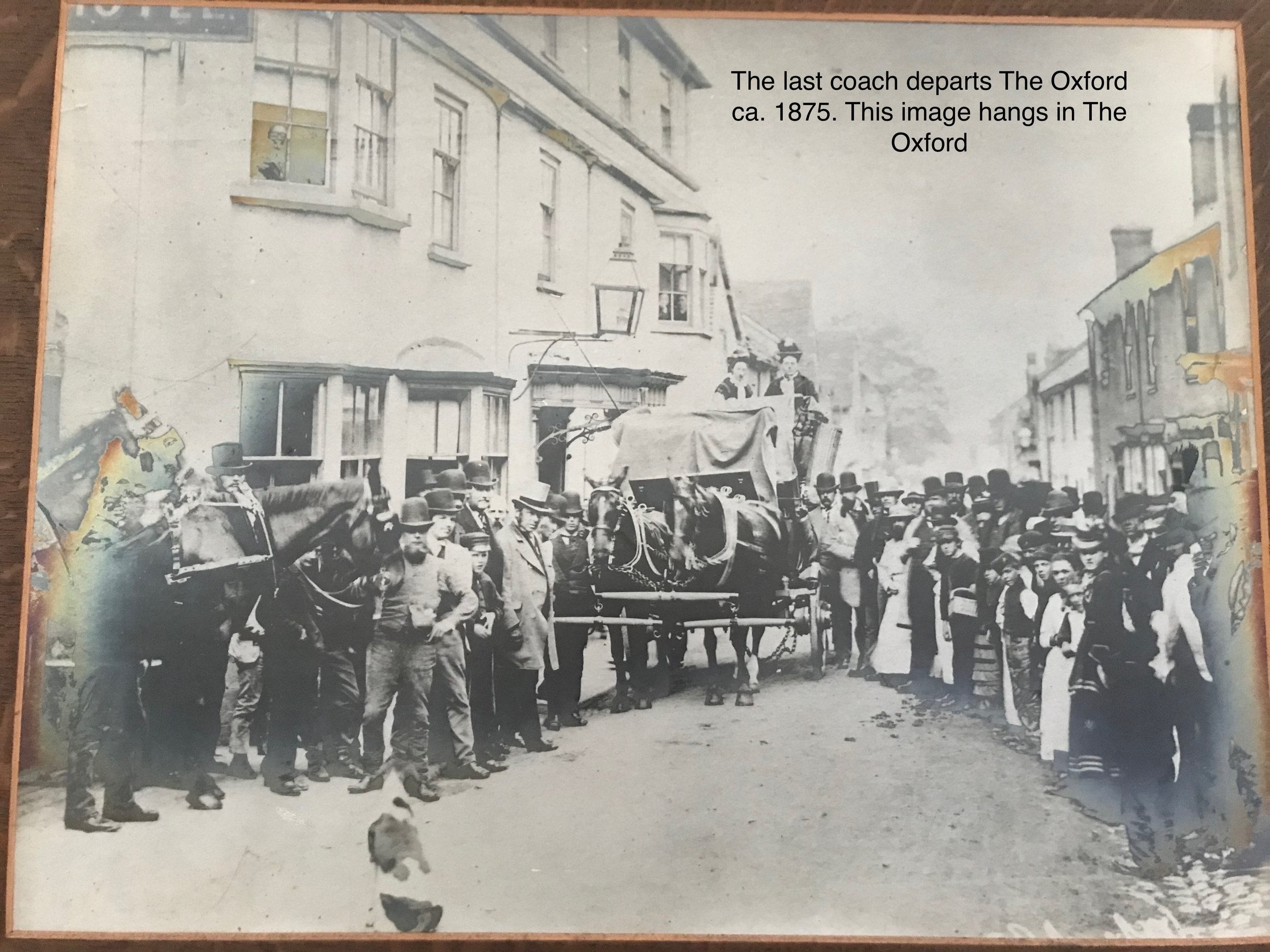The History of The Oxford Arms
The origins of The Oxford Arms on Kington’s Duke Street are lost in the mists of time. Originally called The Salutation Inn, an inn is said to have existed on the site since the 1300s, though the age of the current building is unknown.
In 1706, The Salutation Inn had nine guest rooms, as well as many additional buildings in the yard serving as stables, storage, and a blacksmith’s forge reshodding animals and repairing wagons as they passed through. By 1727, the inn was in the hands of the aristocratic Harley family, and in 1745 it was renamed The Oxford Arms to reflect the Harleys’ title of the Earldom of Oxford and Mortimer.
In 1756, the roads around Kington were improved with the introduction of the local Turnpike Trust and The Oxford Arms became a coaching inn and a major stopping point for travellers from London to Wales and the north. The late 18th and early 19th centuries were The Oxford’s golden era as a coaching inn. In 1786, you could leave from The Oxford Arms in “a new, elegant, light coach” at 5pm on a Friday, and arrive at London’s Bull & Mouth in time for Sunday lunch.
1850s timetable of coaches leaving The Oxford Arms
By the early 1800s, the great and the good were passing through Kington and visiting The Oxford. The owner at the time was Lady Jane Harley, a fabled beauty who had a brief but passionate affair with the poet Lord Byron in the winter of 1812-13. Byron and other Romantic poets like William Wordsworth and Percy Shelley attended balls at The Oxford around this time.
Lady Jane and her husband also invested significantly in The Oxford during their tenure, funding considerable enlargements in 1811-12. Redevelopments continued under later tenants, and, in an effort to bring London style to Duke Street, the decorative front was added in 1829, complete with portico, bays, and columns.
In 1845, historian and Kingtonian Richard Parry described The Oxford Arms as follows: “The principal inn in the town of Kington is the Oxford Arms, formerly called “The Salutation”, in Duke Street, which lets post chaises and horses—and where the mail-coach stops for the change of horses and the refreshment of passengers. … It is a stone and timber building, three story high, with a long frontage, and commodious in all other respects for noblemen, gentlemen and travellers.”
The opening of Kington railway station in 1857 was the beginning of the end of the coaching era, although for a time The Oxford sent “a coach to meet every train” so that the hostelry remained the first port of call for visitors to Kington. However, the 20th century saw The Oxford play host to new audiences.
A group of “Friends of Women’s Suffrage” sought refuge at The Oxford Arms after being given a hostile reception at their meeting in Kington in June of 1913. The group were pelted with eggs and drowned out by Kingtonians blowing horns and singing. However, they bravely kept their speeches going for an hour before escaping to the friendlier environment at The Oxford!
In the 1970s, The Oxford was the favourite watering hole of Kington’s then most celebrated resident, Mike Oldfield, who found refuge in Herefordshire from the pressures of fame after releasing Tubular Bells. Here he wrote Hergest Ridge (1974) and Ommadawn (1975). Legend has it that he would walk barefoot from his house The Beacon on Bradnor Hill to The Oxford Arms, where he would drink a pint sitting in one of the windows and work on his compositions.
The Oxford Arms has been central to so many locals’ memories, as a favourite pub and venue for all kinds of celebrations. However, as with all large ancient buildings, rising costs and the passage of time have taken their toll on The Oxford.
Open Arms Kington—a Community Interest Company founded by local residents—raised the funds to buy The Oxford Arms in April 2023. In November 2024, Open Arms Kington received a Development Grant from The National Lottery Heritage Fund, which is enabling us to develop plans to renovate the building and put the project on a more secure footing. In the long term, The Oxford Arms will be a community-owned hub, pub, and venue. It will be supported by a B&B and hospitality business which will open once the renovations are complete, all profits from which will be directed back into community projects and development.



